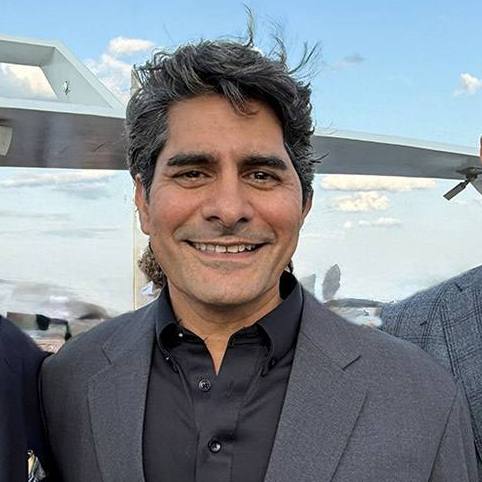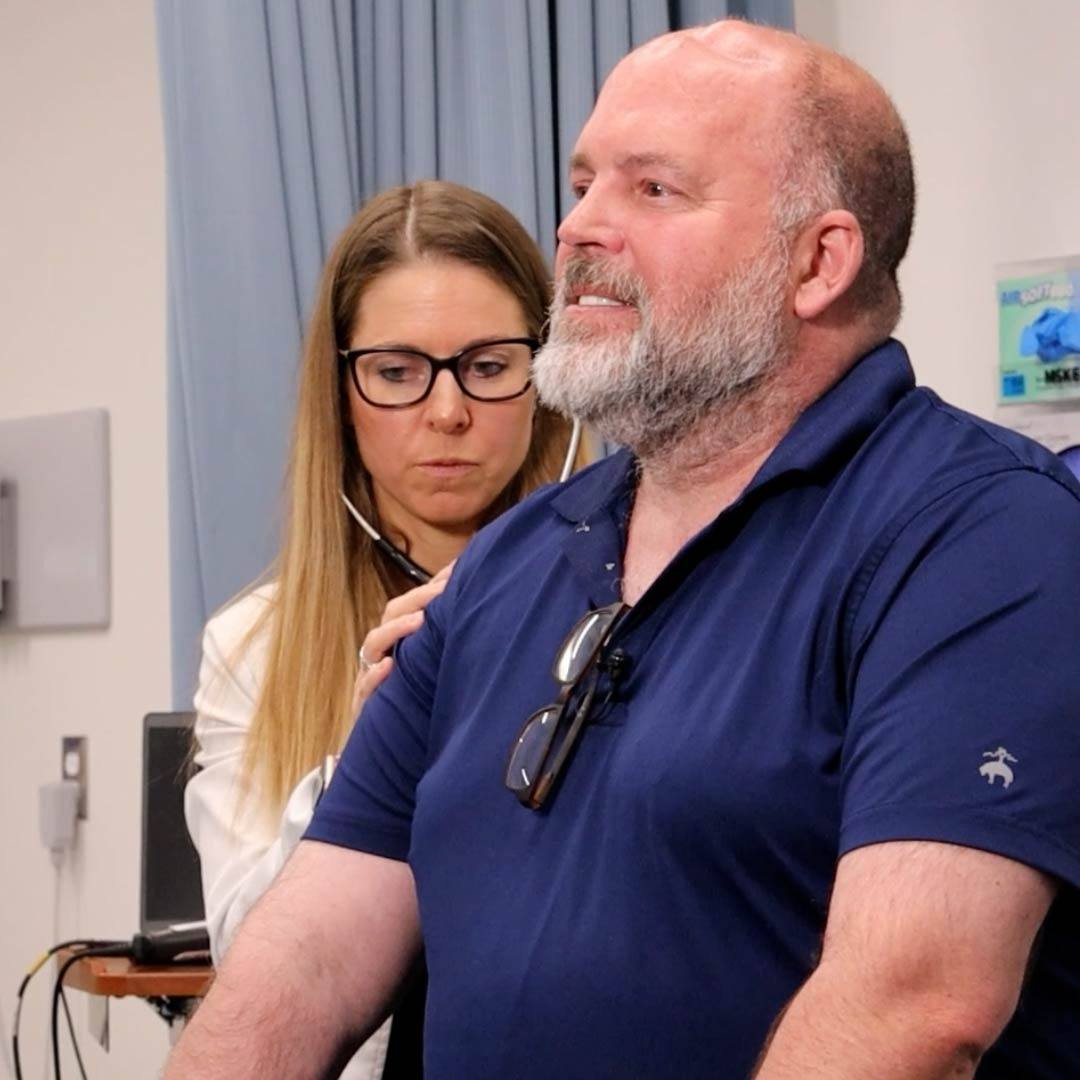
Rich Bradley was about to travel to Europe to learn more about his late uncle's heroism during World War II when he suddenly faced a battle of his own — a severe form of Guillain-Barre syndrome that required specialized care at Mayo Clinic.
In September 2018, Rich Bradley was about to embark on the adventure of a lifetime. He had traveled to Jacksonville, Florida, to meet up with his cousin, Kenny. They were flying to Normandy, France, two days later to retrace the steps of their uncle, a decorated World War II hero.
"He was awarded three Silver Stars, two Bronze Stars and a Purple Heart," Rich says. "I wanted to write a memorial biography about him."
But once Rich arrived in Jacksonville, a pain in his right arm that he'd felt a few days earlier became sharp. His cousin took him to a local emergency department. After staying overnight for observation, Rich returned to his cousin's home. That afternoon, the pain continued to get worse, and it radiated to his chest. Rich returned to the same emergency department, but he was discharged again.
"Kenny drove me back to his place, and when I tried to get out of his truck, I collapsed," Rich says. "I couldn't stand up."
Still in considerable pain the next morning, Rich began to suspect his symptoms were neurological. He got on the internet and Mayo Clinic appeared at the top of his search results.
Rich had been a patient at Mayo Clinic's Rochester campus for 15 years for a congenital heart defect, and his family had a long history of receiving care there. He knew Mayo Clinic was where he wanted to be evaluated. After collapsing again, he was taken to Mayo Clinic's Florida campus by ambulance.
A severe form of a rare disease
"I felt my life slipping away on the way to Mayo. I lost hope," Rich says. "But when they opened the doors to the ambulance, and I saw about 30 people standing there, I began feeling hopeful because somebody was taking this seriously."
Rich remembers being in a room surrounded by several doctors. "I'm looking around, and I see this man with white hair, a white beard and a red vest. He says it's Guillain-Barre,'" Rich recalls. "I later found out he was neurologist Benjamin Eidelman, M.D."
Guillain-Barre syndrome is a rare disorder in which the body's immune system attacks the nerves. In severe cases, it can result in complete paralysis.
"You start getting tingling and pain in your extremities. It usually starts in the toes and moves up. Over the course of a few days, it migrates up the legs, fingers and arms," says Jason Siegel, M.D., a neuro-critical care physician who was a member of Rich's Mayo Clinic team. "The most worrisome symptoms are when you can't swallow and your diaphragm stops working."
"The care I got at Mayo was the best I've ever experienced in my life. This is the most phenomenal hospital in the world."
Rich Bradley
Rich's was a severe case, affecting his ability to swallow, cough and breathe. At Mayo Clinic hospital, he was placed on a ventilator and required a feeding tube. During 2½ weeks in the ICU, Rich underwent five days of plasma exchange to remove antibodies that were contributing to his immune system's attack on the peripheral nerves.
"The care I got at Mayo was the best I've ever experienced in my life," Rich says. "This is the most phenomenal hospital in the world. There was someone checking up on me constantly."
Rich was transferred from the ICU to inpatient rehabilitation. But four days later, he had a relapse and returned to the ICU. Rich underwent another course of plasma exchange and was released two weeks later.
"Dr. Siegel always came in with the other doctors to see how I was progressing," Rich says. "He was so nice and encouraging, and answered all of my and my wife's questions."
That clear communication is crucial, according to Dr. Siegal. "The time we take to explain a patient's condition, that's a big part of why we're different," he says.
After a third relapse, Rich was hospitalized again and received intravenous immunoglobin therapy, or IVig, and steroids. He also began physical and occupational therapy.
"Immunoglobulin containing healthy antibodies from blood donors can block the activity of damaging antibodies which are causing Guillain-Barre syndrome," Dr. Siegel says. "After we discharged him, Mr. Bradley got weekly infusions of IVig for six weeks, along with steroids."
The road to a full recovery
Rich returned to his home in Wheaton, Illinois, and did inpatient rehabilitation for six weeks, followed by outpatient physical therapy. He's been walking with a walker and expects to transition to a cane by the end of May.
"There are many presentations of Guillain-Barre," Dr. Siegel says. "In the most severe cases, like Mr. Bradley's, the immune system not only attacks the myelin sheath that covers the nerves, it attacks and damages the nerves themselves, and those regenerate slowly — about 1 millimeter a day."
"The care and compassion at Mayo were overwhelming."
Rich Bradley
Rich is excited about the progress he's made after battling such an aggressive form of Guillain-Barre. "I can walk and talk again. I can feed myself," Rich says. "I can do all the regular things I need to do. I'm very grateful for the care I received at Mayo."
Rich's eating habits changed drastically while he was in the hospital, and he's taking advantage of his second chance to adopt a healthier diet. Diagnosed with diabetes 10 years ago, Rich has been off his diabetes medication for two months thanks to his new diet. His care team plans to reassess whether he can continue to stay off the medicine.
"The care and compassion at Mayo were overwhelming. The physical and occupational therapists were enthusiastic and got me to do things I never thought I could have done," Rich says. "The nursing staff was awesome. I can't say enough about them. I felt loved and cared for."
HELPFUL LINKS
- Learn more about Guillain-Barre syndrome.
- Read about the Department of Neurology.
- Connect with others talking about Guillian-Barre Syndrome on Mayo Clinic Connect.
- Explore Mayo Clinic's Florida campus.
- Request an appointment.







